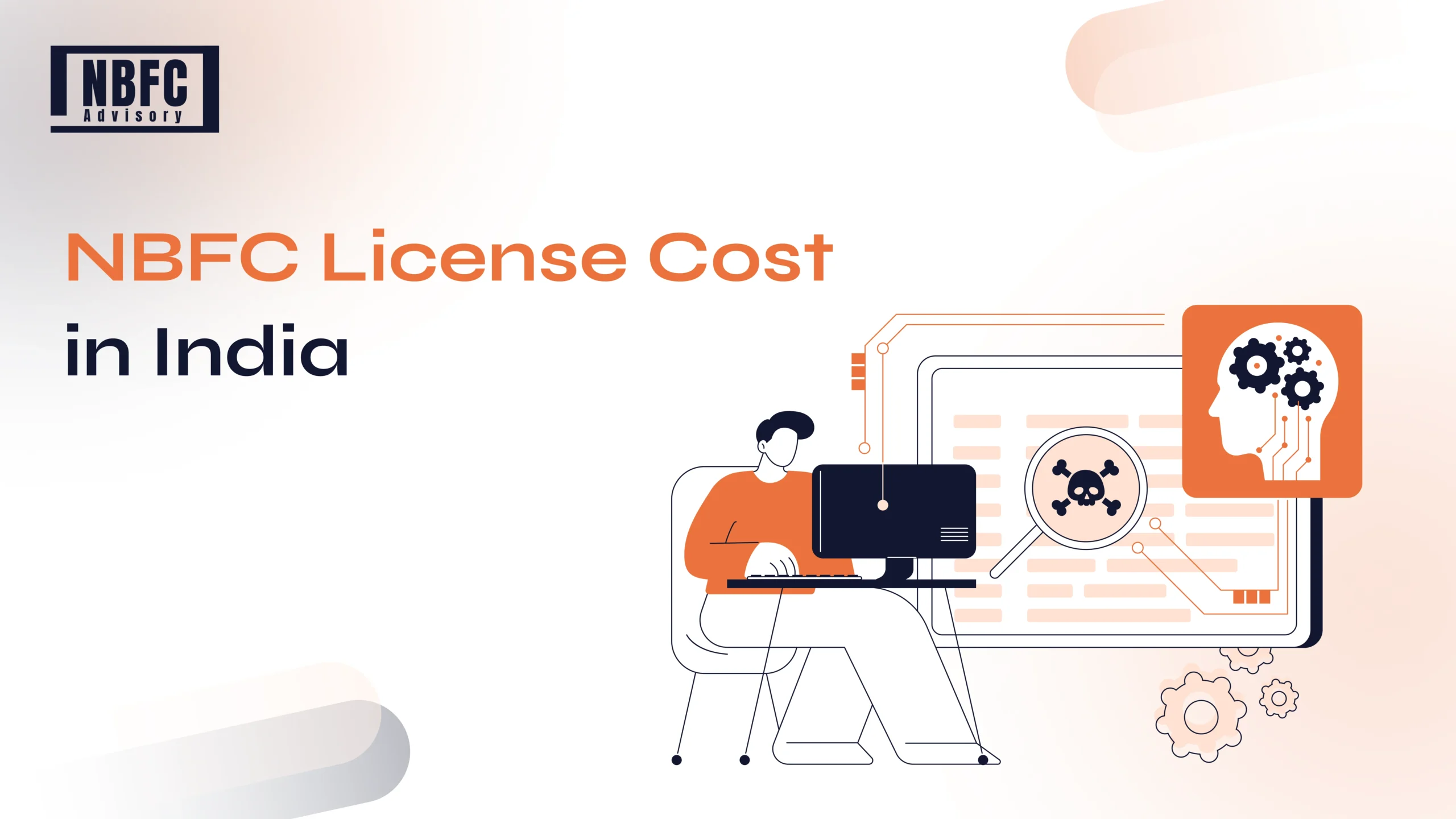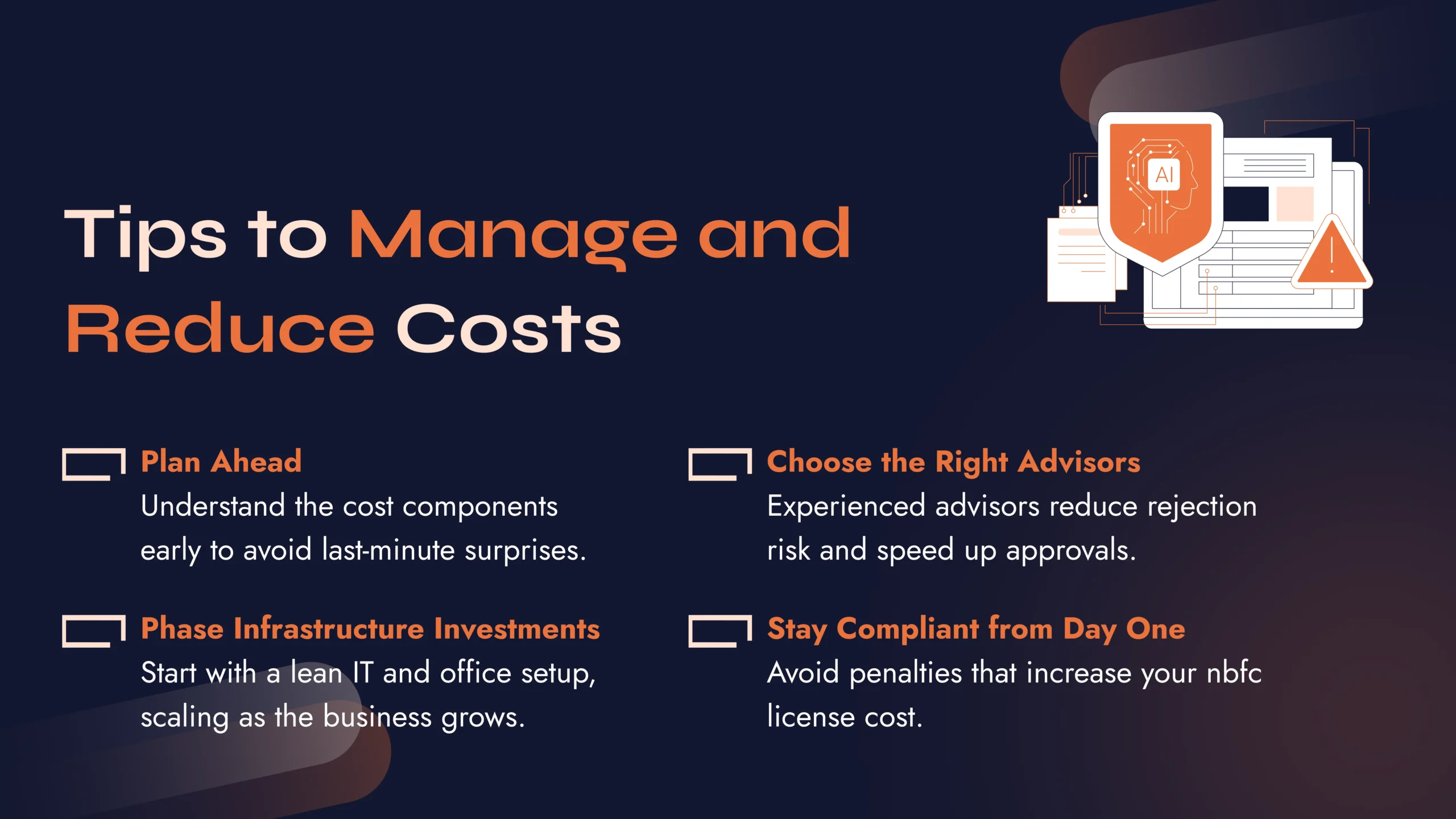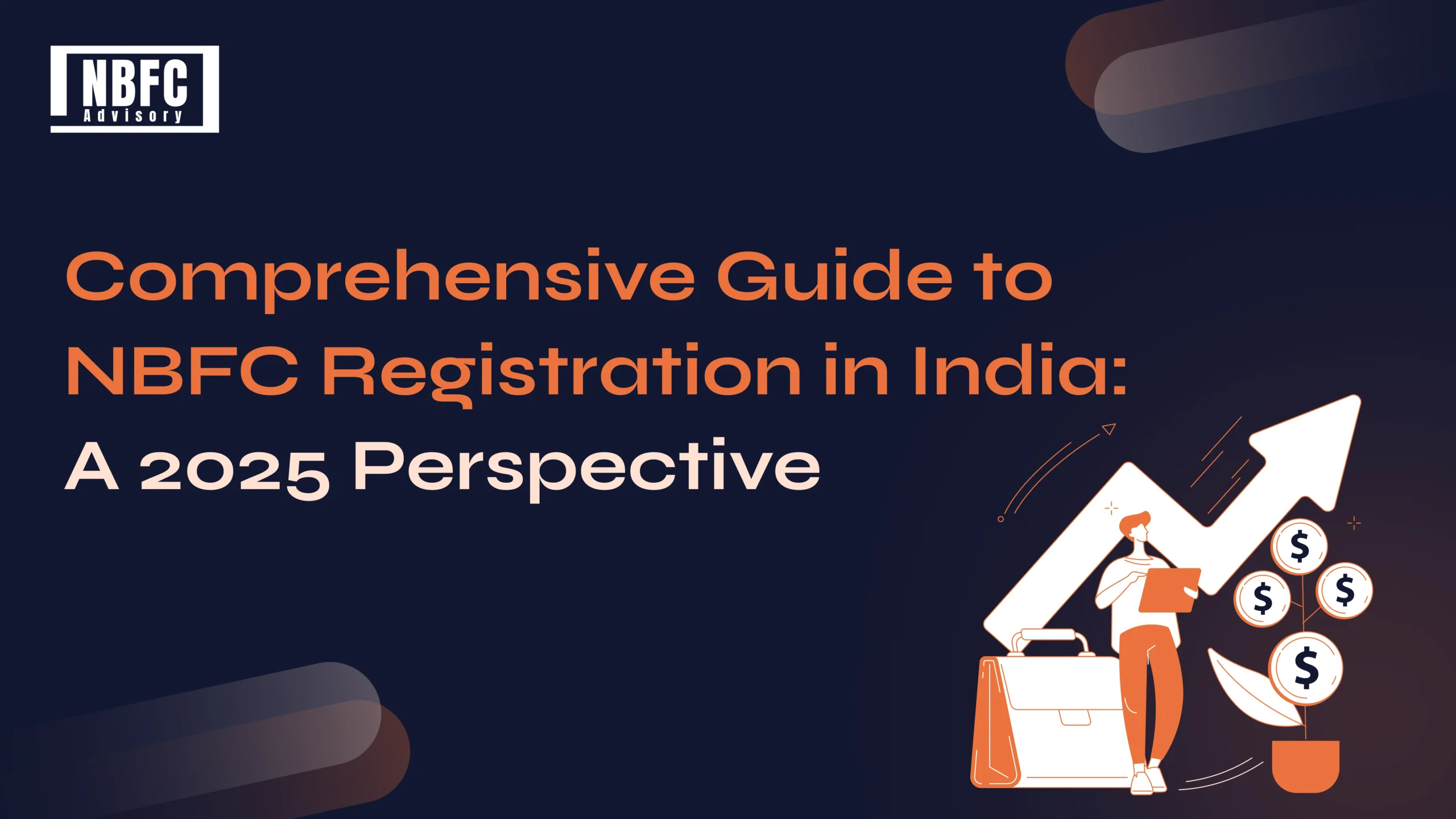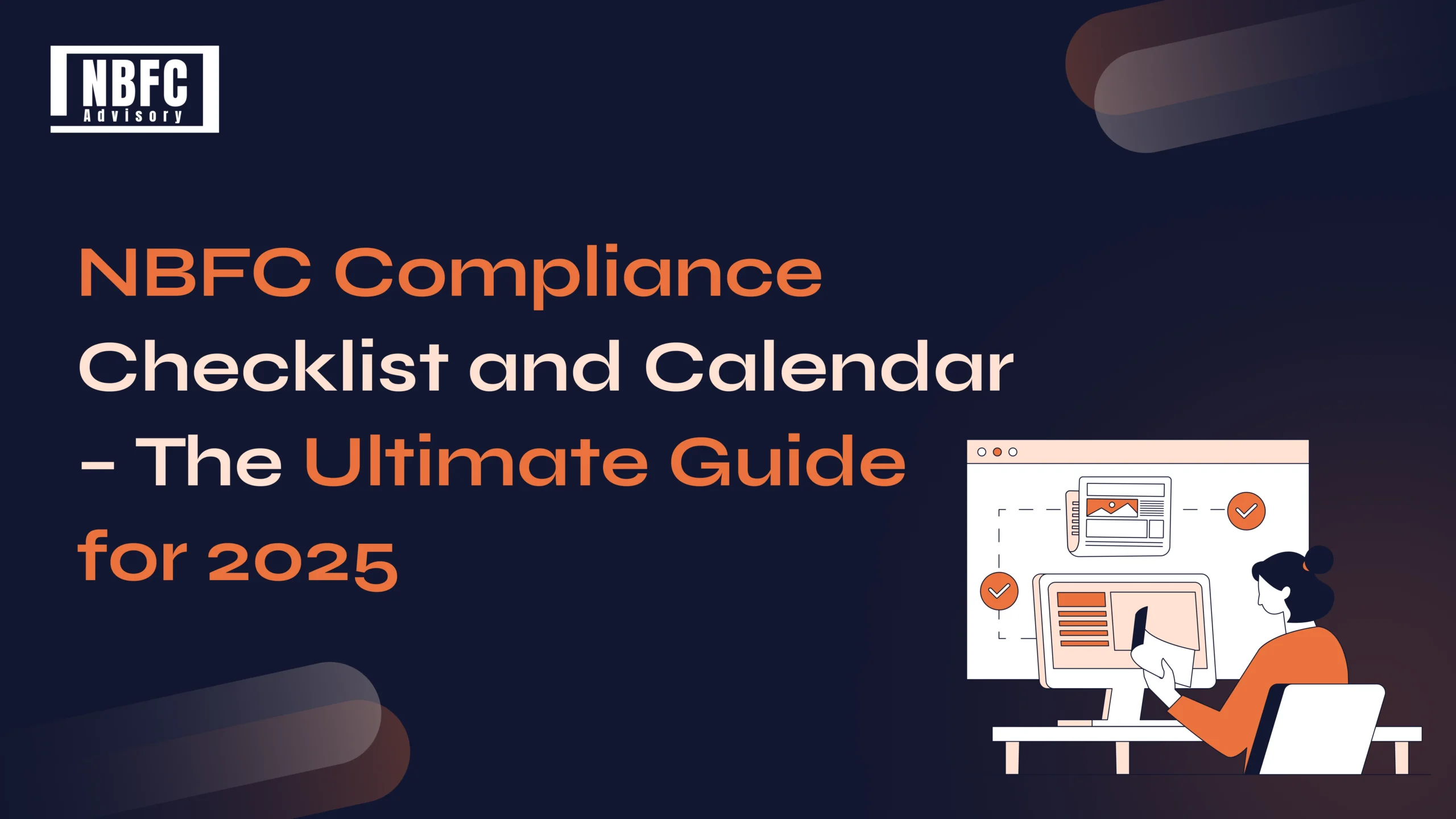In the last ten years, India’s financial sector has changed a lot. Alongside traditional banks, Non-Banking Financial Companies (NBFCs) have become essential in making financial services accessible to more people. They provide everything from personal loans and microfinance to housing and infrastructure funding, reaching areas and customers that banks often overlook.
But before starting operations, every company that wants to function as an NBFC must secure approval from the Reserve Bank of India (RBI). This approval comes in the form of an NBFC license. One of the first questions every entrepreneur asks is: What is the NBFC license cost in 2025?
The nbfc license cost is not just about the nbfc registration fees paid to RBI. It also includes professional advisory costs, compliance expenses, audits, IT systems, office setup, and the crucial Net Owned Fund (NOF) requirement. At NBFC Advisory, we work with entrepreneurs across India and abroad to simplify this process.
This guide explains everything you need to know how to get NBFC license, the complete breakdown of costs, and strategies to manage expenses wisely.
What is an NBFC?
A Non-Banking Financial Company (NBFC) is a financial institution that is registered under the Companies Act, 2013, and is regulated by the Reserve Bank of India (RBI). While they cannot accept demand deposits like banks, NBFCs can provide credit, loans, housing finance, microfinance, leasing, and investment services.
To begin operations, every NBFC must obtain an nbfc license and an official nbfc certificate from RBI. Without this certificate, a company cannot legally engage in financial business.
Why RBI Licensing Matters
The NBFC sector deals directly with public funds. RBI licensing ensures only serious, well-capitalized, and compliant companies enter this space. An NBFC license builds customer trust, reduces fraud risk, and gives the company credibility with banks, investors, and regulators.
Without a license, operating as an NBFC is illegal and can result in penalties, closure, or even criminal liability.
Types of NBFCs under RBI in 2025
The Reserve Bank of India has modernized its classification framework for NBFCs, especially after the Scale-Based Regulation (SBR) introduced in 2022. As of 2025, NBFCs fall into the following categories:
Investment and Credit Company (NBFC-ICC)
- Earlier, there were Loan Companies, Investment Companies, and Asset Finance Companies.
- In February 2019, RBI harmonized them into a single category called NBFC-ICC(Investment & Credit Company).
- NBFC-ICCs can engage in lending, investments, and asset financing—all under one license.
Source: RBI Harmonization of NBFC Categories
Infrastructure Finance Company (NBFC-IFC)
- At least 75% of assets deployed in infrastructure loans.
- Minimum Net Owned Fund (NOF): ₹300 crore.
- Credit rating: ‘A’ or above.
Infrastructure Debt Fund – NBFC (IDF-NBFC)
- Designed to refinance large infrastructure projects.
- Raise resources through bonds and long-term lending.
NBFC-Microfinance Institution (NBFC-MFI)
- Provide small loans to low-income households.
- Governed by the Regulatory Framework for Microfinance Loans (2022, updated January 30, 2025), which requires that regulated entities assess income and indebtedness at the household level, ensure that total loan repayment obligations of a household do not exceed 50% of its monthly income, and apply these norms to avoid borrower over-indebtedness.
NBFC-Factors
- Specialize in receivables financing and factoring services.
- Support SMEs by improving cash flow and liquidity.
NBFC-Housing Finance Companies (HFCs)
- Regulated jointly by RBI and NHB (National Housing Bank).
- Provide loans for housing and real estate development.
- RBI Notification on HFCs
Core Investment Companies (CICs)
- Hold investments in group companies (90% of assets).
- Reforms in 2020 mandated stricter corporate governance.
- CIC Guidelines 2020
NBFC-P2P Lending Platforms
- Digital platforms connecting borrowers and lenders directly.
- In 2025, RBI has tightened data privacy and cybersecurity rules.
NBFC-Account Aggregators (AA)
- Aggregate and share financial data with customer consent.
- A backbone of India’s Digital Public Infrastructure (DPI).
Scale-Based Regulation (SBR) 2025 Update
NBFCs are grouped into layers:
- Base Layer (BL): Small NBFCs with limited systemic risk.
- Middle Layer (ML): Larger NBFCs, including deposit-taking NBFCs.
- Upper Layer (UL): Systemically important NBFCs.
- Top Layer (TL): For NBFCs posing extreme risk (ideally empty).
RBI Scale-Based Regulation Circular
When Did RBI Merge Investment Companies, Loan Companies, etc. into NBFC-ICC?
The idea of merging NBFC categories was part of RBI’s regulatory reform to simplify and make norms activity-based rather than entity-based.
- In February 2019, RBI proposed merging Investment Companies, Loan Companies, and Asset Finance Companies into a single category called NBFC-ICC.
- Companies earlier classified as Investment or Loan Companies but engaged in credit intermediation (like lending) were required to register as ICC.
Example: Tata Capital, which was a Core Investment Company (CIC), merged some subsidiaries in 2024 (like Tata Cleantech and Tata Capital Financial Services) and shifted into NBFC-ICC.
This merger ensures better operational flexibility and removes arbitrage between categories.
Minimum Capital Requirement (Net Owned Fund – NOF)
The biggest component of nbfc license cost is the Net Owned Fund (NOF).
- As of 2025, the minimum NOF required is ₹10 crore for most NBFC categories.
- For specialized NBFCs like Infrastructure Finance Companies, it can be much higher.
- This capital must be unencumbered (free from liabilities) and maintained throughout operations.
While this isn’t a fee, it represents a major opportunity cost, as funds remain parked with limited flexibility.
Application and Government Costs
The costs of registering an NBFC in India include several statutory and procedural expenses. While exact amounts vary, the main heads are:
- NBFC Registration Fees (RBI): Payable at the time of application.
- Documentation & Notarization Costs: For preparing, attesting, and verifying documents.
- Company Incorporation Fees (MCA): Paid while registering the company with the Ministry of Corporate Affairs.
These costs vary depending on the company’s authorized share capital and state-specific stamp duty rules.
Step-by-Step Process of NBFC Registration
- Company Incorporation under the Companies Act.
- Infuse Net Owned Fund (NOF) of at least ₹10 crore.
- Open Bank Account in a scheduled commercial bank to deposit NOF.
- Apply Online to RBI using the PRAVAAH portal.
- Submit Hard Copy of application and documents to the regional RBI office.
- Scrutiny by RBI – Detailed review of promoters, financial standing, and business model.
- Certificate of Registration (CoR) – Issued if RBI is satisfied.
Common Challenges in Registration
- High capital requirement.
- Structured RBI Approval Process
- Strict background checks of directors.
- Continuous changes in regulations.
Professional and Advisory Fees
Most companies hire advisors, lawyers, and chartered accountants to guide them through the licensing process.
- Consultants prepare the application, business plan, and compliance roadmap.
- Chartered Accountants certify the Net Owned Fund (NOF) and other financial documents.
- Company Secretaries and lawyers ensure all legal requirements are met.
These costs vary but are an essential part of the NBFC license expenses in 2025.
Compliance and Audit Costs
Pre-Licensing Compliance
Before getting approval, companies need to make sure that their incorporation documents, shareholding pattern, and capital structure comply with RBI regulations.
Post-Licensing Audits and Filings
After obtaining a license, NBFCs are required to carry out statutory audits, file returns, and submit regular compliance reports. These ongoing expenses are often missed when planning the initial budget.
Technology and Infrastructure Expenses
Modern NBFCs depend heavily on IT systems for loan disbursement, collections, and reporting.
- Core lending software is essential.
- Cybersecurity systems are mandatory under RBI guidelines.
- Office setup and backend support also add to expenses.
For fintech-driven NBFCs, IT can account for 15–20% of total costs.
Ongoing Regulatory Costs
NBFCs must file regular returns with the RBI, undergo inspections, and sometimes renew certain approvals. These ongoing regulatory costs are part of the nbfc license cost picture.
Hidden or Indirect Costs
Beyond direct nbfc registration fees, companies should plan for:
- Delays in approval, which increase advisory and compliance costs.
- Opportunity cost of capital locked in as NOF.
- Training costs for staff on regulatory compliance.
Tips to Manage and Reduce Costs
- Plan Ahead – Understand the cost components early to avoid last-minute surprises.
- Choose the Right Advisors – Experienced advisors reduce rejection risk and speed up approvals.
- Phase Infrastructure Investments – Start with a lean IT and office setup, scaling as the business grows.
- Stay Compliant from Day One – Avoid penalties that increase your nbfc license cost.
Conclusion
The real nbfc license cost in 2025 is a combination of nbfc registration fees, capital requirements, advisory charges, compliance expenses, and IT infrastructure. While government fees are small, the overall cost can be significant.
How NBFC Advisory Can Help
At NBFC Advisory, we help promoters see the complete picture and guide them step by step on how to get an NBFC license. With the right planning, you can control costs, avoid unnecessary delays, and secure your NBFC certificate smoothly and efficiently.
NBFC Advisory supports businesses at every stage, right from company registration to securing an NBFC license from the Reserve Bank of India. Our role doesn’t end with licensing; we continue to provide end-to-end compliance support, product designing, policy drafting, and RBI advisory services.
For FinTech startups, we deliver complete guidance, including software setup, and robust cyber security frameworks. This allows founders to focus on growing their business without being burdened by regulatory complexities.
With a proven track record of NBFC license approvals and successful FinTech implementations, NBFC Advisory has established itself as a trusted partner for entrepreneurs and companies entering the financial sector.
Ready to take the next step? Book a call with us today and let’s build your NBFC or FinTech venture the right way.
FAQs For NBFC License






